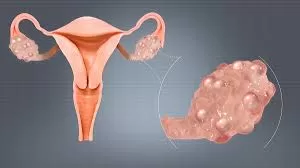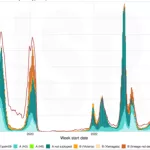A recent study published in the Journal of Clinical Endocrinology and Metabolism has shed light on a concerning issue affecting women with Polycystic Ovary Syndrome (PCOS)—the elevated risk of developing eating disorders. The research revealed that women with PCOS are at a 50% higher risk of suffering from eating disorders, including binge eating disorder and bulimia nervosa.
PCOS is a hormonal condition that affects approximately 10% to 12.5% of women of reproductive age globally. It is characterized by irregular menstrual cycles, elevated levels of male hormones (androgens), and polycystic ovaries, which can lead to a range of health complications. These women also face a heightened risk of metabolic issues such as diabetes and infertility, making the study’s findings particularly alarming.
The new research points to a significant connection between the hormonal imbalances and disordered eating patterns among women with PCOS. Elevated testosterone levels, which are common in women with the syndrome, can contribute to mental health challenges, including anxiety and depression. The study suggests that weight stigma, especially among those who are overweight or struggling with weight gain due to PCOS, exacerbates these mental health challenges, often leading to unhealthy eating behaviors.
The analysis, which compiled data from 20 cross-sectional studies across nine countries, found that both normal-weight and overweight women with PCOS showed an increased risk of disordered eating. This highlights that body mass index (BMI) is not a determining factor in the elevated risk, further emphasizing the need for comprehensive health assessments for all women with PCOS, regardless of their weight.
The researchers stress that healthcare providers must be vigilant in screening women with PCOS for eating disorders, particularly before offering lifestyle or weight management advice. Early detection and intervention are critical in preventing the long-term mental and physical health complications associated with eating disorders.
This study underscores the complexity of PCOS as a condition and its broader impact on women’s health, urging healthcare professionals to adopt a more holistic approach to treatment and care.
For further details, visit ET Healthworld.











